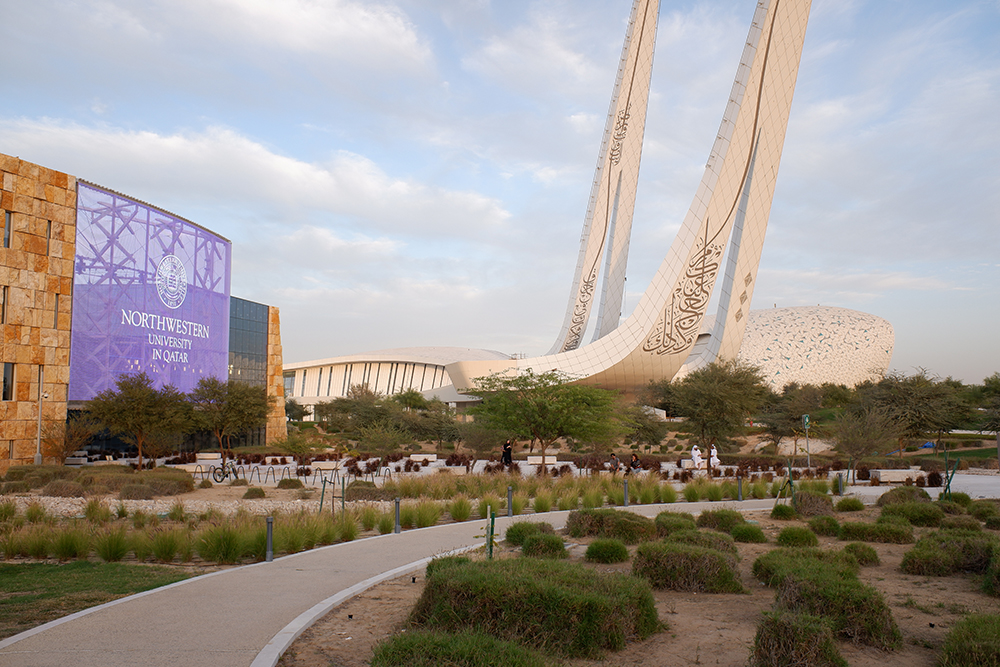Main Content
New Paper on “Gateway Cities“
Arab Gulf Region: University Offshore Campuses as “Hinges“ of Globalisation

A recent IRS paper shows how university offshore campuses can affect the strategic positioning of cities. Tim Rottleb investigated the effects of the interplay between urban development policies and the internationalisation of universities in the Arab Gulf region. The study areas were the cities of Doha, Dubai and Ras al-Khaimah.
The core result of the study is that strikingly similar patterns have emerged for the strategic positioning of university offshore campuses in the three cities. Rottleb describes the campuses that can be recognised from this in global competition as "gateway functions". Where cities are expanding their strategic-economic position, such "gateways" for transnational higher education are increasingly forming in regional but also supraregional networks of the global knowledge economy.
Universities play an important role in urban competition. They train highly qualified specialists and decision-makers. They then have the necessary knowledge for dealing with economic sectors that are constantly internationalising and differentiating. This role of universities is reinforced by the fact that cities and governments are increasingly focusing their location policies on the expansion of science and education. Behind this is the public expectation of a hinge function in location policy, with which one can permanently hold one's own in the international competition for investors and well-trained specialists.
Rottleb's paper shows that a special dynamic emerges when cities outside the industrialised global North pursue this hinge strategy. When they enter the global competition, they very specifically try to attract physical offshoots of mostly western universities. This is associated with attractive advantages. At so-called international branch campuses or offshore campuses, students can complete selected courses of study at the main university, usually including accreditation from the sending country. Often these campuses are located in specially created areas. And they are often labelled under the political slogan "education hub". Their aim is to attract highly qualified local workers to the knowledge economy and expertise from abroad.
On the one hand, such campuses provide access to the internationalising Western universities. On the other hand, students from the Near and Middle East and neighbouring regions also benefit from internationally recognised degrees. This applies especially to those who cannot or do not want to travel to the countries of origin of the respective universities. This group of students is then equipped with the necessary qualifications after graduation to compete in the global labour market. Or these students qualify to work in the international sectors of the economies of their respective countries of origin. This creates another hinge function in the three cities researched by Rottleb: they anchor and spread a leading role of Western higher education in the region. And last but not least, they thereby reinforce certain globalisation processes locally.

